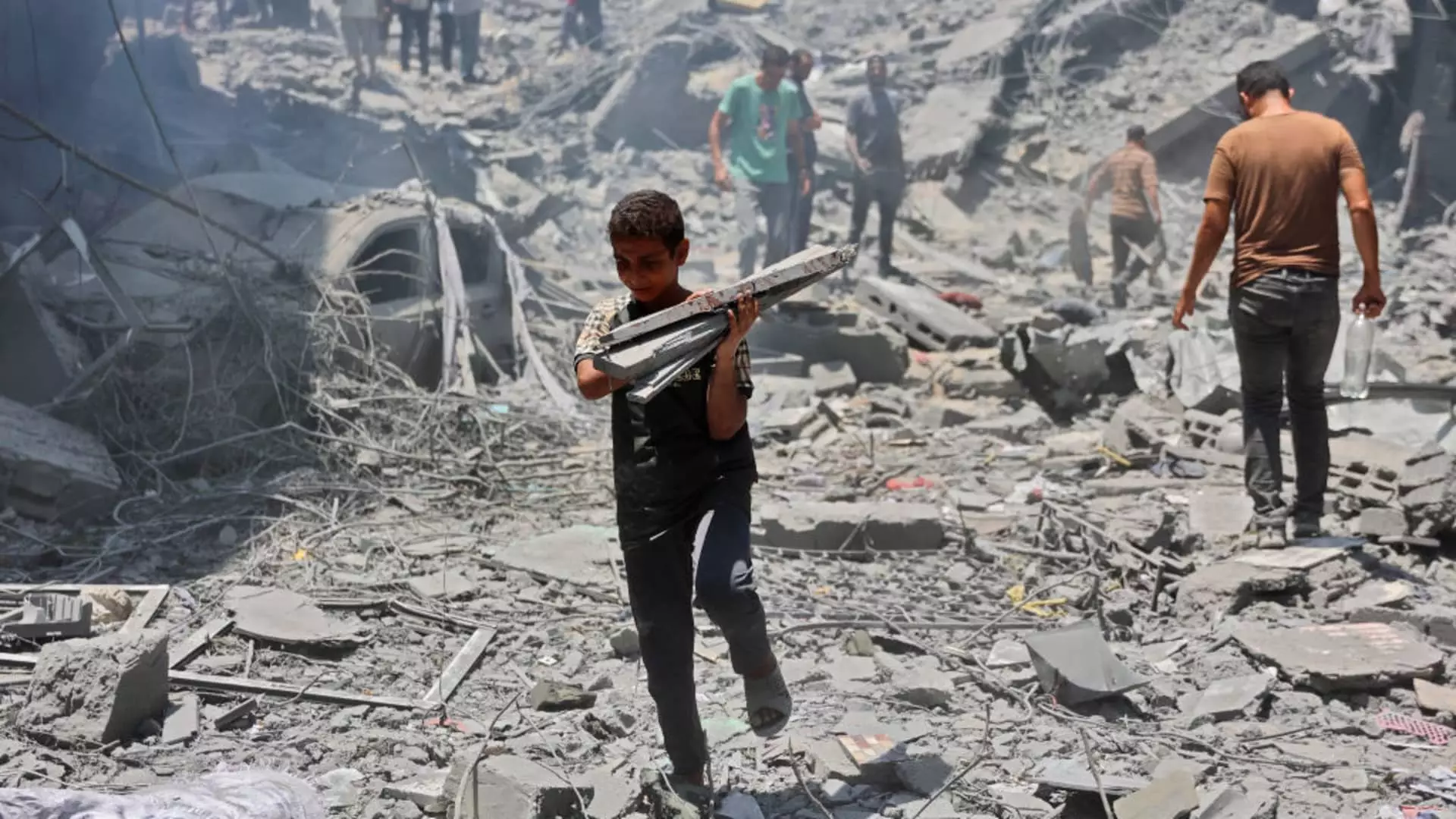Israeli Prime Minister Benjamin Netanyahu recently hinted at a potential end to the “intense” phase of fighting in the Gaza Strip, while emphasizing that the broader conflict against Hamas is far from over. In a rare live interview with an Israeli news outlet, Netanyahu indicated that once the intense phase concludes, Israeli forces would be able to shift their focus towards the northern border with Lebanon, where tensions with Hezbollah have escalated in recent weeks.
In the midst of the ongoing conflict, thousands of Israeli and Lebanese civilians have been forced to flee their homes in border-facing settlements due to the escalating violence. Hezbollah has expressed solidarity with the Palestinian cause, intensifying their attacks following the Israeli Defense Forces’ killing of a senior commander in the Lebanese faction. The situation has led to a displacement crisis in the region, with no clear end in sight.
Netanyahu mentioned the possibility of bringing back evacuated residents once the intense phase of combat concludes, aiming to achieve this through diplomatic means if possible. However, he reiterated that the Israeli military will not halt its campaign in Rafah until their objectives are met. The prime minister also addressed the necessity of eliminating Hamas capabilities in order to establish military control in the Gaza enclave and potentially form a government under the management of moderate regional countries.
As tensions continue to rise between Israel, Lebanon, and other regional actors, international efforts to de-escalate the situation have been initiated. U.S. special envoy Amos Hochstein and German Foreign Minister Annalena Baerbock are among the officials who have stepped in to address the growing conflict. However, Washington’s unwavering support for Israel has come under scrutiny, with concerns over the proportionality of the Gaza conflict and the rising death toll among Palestinian civilians.
Netanyahu’s recent claims regarding a decrease in weapons shipments from the U.S. have further strained the relationship between the two allies. The prime minister highlighted a significant drop in armaments arriving from the U.S. and expressed frustration over delays in resuming the shipments. These developments have added another layer of complexity to the already fragile U.S.-Israeli ties, raising questions about the future of their partnership in the midst of the ongoing conflict.
As the conflict in Gaza continues to unfold, the focus appears to be shifting towards finding a resolution that addresses the root causes of the violence. With international pressure mounting and regional tensions escalating, the need for a sustainable peace framework becomes increasingly urgent. The coming days and weeks will be crucial in determining the trajectory of the conflict and the prospects for achieving a lasting peace in the region.



Leave a Reply